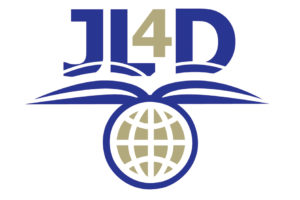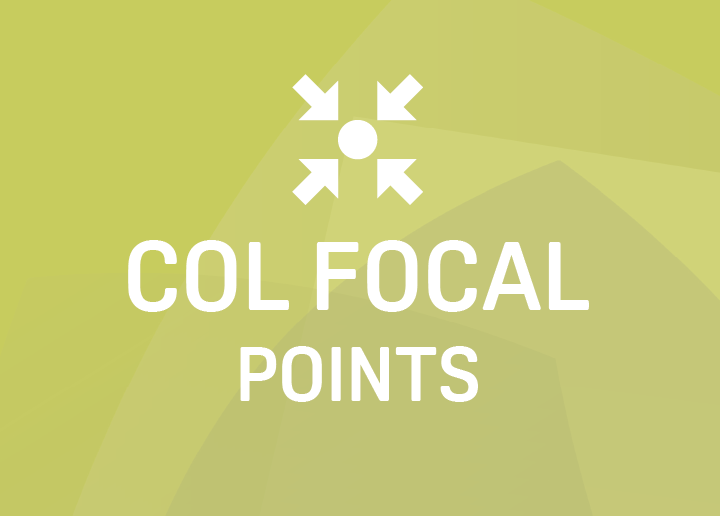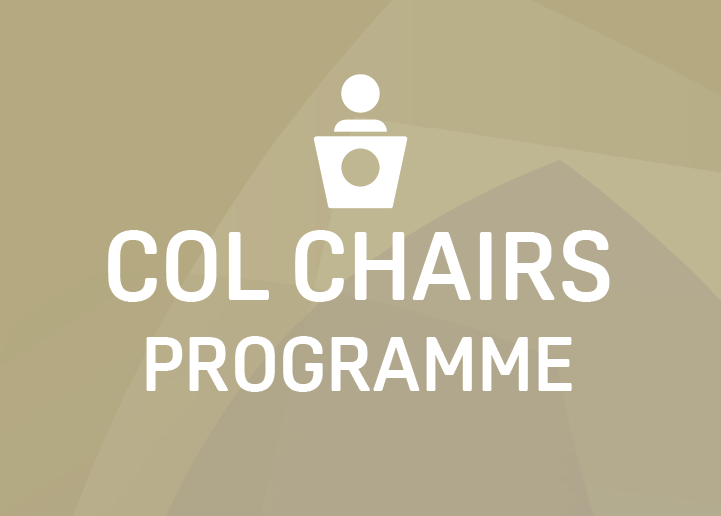 The Journal of Learning for Development (JL4D), a Scopus-indexed journal, provides a forum for the publication of research with a focus on innovation in learning, in particular but not exclusively, open and distance learning (ODL), and its contribution to development. If the research is not directly about ODL, then we encourage authors to consider submitting research on equity, access and success using technology-enabled learning. Content includes interventions that change social and/or economic relations, especially in terms of improving equity.
The Journal of Learning for Development (JL4D), a Scopus-indexed journal, provides a forum for the publication of research with a focus on innovation in learning, in particular but not exclusively, open and distance learning (ODL), and its contribution to development. If the research is not directly about ODL, then we encourage authors to consider submitting research on equity, access and success using technology-enabled learning. Content includes interventions that change social and/or economic relations, especially in terms of improving equity.
Why Publish with JL4D?
We provide:
- Open access: JL4D is published under Creative Commons Attribution-ShareAlike licence. Research confirms that open access articles are much more frequently downloaded than other articles.
- Peer review: Your contribution will be rigorously and anonymously peer reviewed by two specialists in your field.
- Journal standing: Published by the Commonwealth of Learning (COL), the journal is guided by a team of reputed experts as members of the Editorial Advisory Board and regional associate editors.
- Indexing: JL4D is listed in many databases, e.g. ERIC, Directory of Open Access Journals, BASE, SCOPUS and others.
- Editorial team support: We will provide constructive feedback, guidance and, where relevant, coaching in developing suitable articles for publication.
We receive:
- Over 300 downloads a day! Your work will be readily available to download.
- Contributions: Research articles, case studies, reports from the field – choose your best category.
- Authors: Eminent authors and new researchers are all included.
- Worldwide submissions: You will be contributing to discussions about learning for development across the world.
Latest Issues
The latest issue of the Journal is always accessible at http://jl4d.org/index.php/ejl4d
Journal Sections
The Journal publishes: research articles, case studies, reports from the field, and book reviews.
Research Articles
The editors welcome articles that contribute new knowledge at the intersection of innovation in learning and development. Articles need to provide a focus in both fields, although not necessarily to the same extent. A wide range of approaches, both quantitative and qualitative are encouraged.
Case Studies
This section of the journal is intended to tell stories that provide short, simple-to-read, personal, ‘in-the-field’ accounts of programmes, processes, events and experiences that give the readers a better understanding of the issues involved. It is intended that the case studies published in the Journal will offer resources for practitioners, teachers and researchers. The aim is to support the sharing of ideas and experience in innovation in learning for development, in order better to understand how learning can support sustainable development.
Reports from the Field
This section of the Journal is intended for brief, descriptive papers on topics of interest to educators and practitioners. It provides a venue for exploring promising practices, program evaluations, policy considerations and innovative examples of education in development contexts.
Book Reviews
The Journal accepts book reviews and reviews of research reports and similar publications from reviewers which are in the area of learning for development addressing education issues including open and distance learning, eLearning and other related technologies advancing learning for development. The book reviews editor accepts both solicited and unsolicited reviews as long as they address the mission and mandate of the Journal. Publishers are requested to send books for review to the Book Review Editor.
Guidelines
1. Length: Maximum length for different sections in the Journal of Learning for Development are: (i) research article: 6,000 words; (ii) Report from the Field: 2,500 words; (iii) case study: 2,500 words; (iv) commentary: 2,500 words; (v) book review: 1,500-2,000 words.
2. Style: A detailed style guide along with an article submission template is available on the Journal website under Author Guidelines. The Journal’s editorial style conforms closely to the Publication Manual of the American Psychological Association (7th ed.). Editorial changes may be made to accepted manuscripts.
3. Abstract: Provide an abstract of approximately 150 words that summarizes the main points of the article.
4. Biographical Notes: Submit a biographical note for each author of not more than 50 words while submitting the paper via the Journal website. Do not include author information on the paper to follow a blind peer review process. Avoid any references to author(s) in the manuscript and use “Author” while citing and in references to the author/s of the paper.
5. References: Sources cited appear in parentheses after each reference (direct or otherwise), giving author’s name (unless mentioned in text), year of publication, and page number(s) in the case of direct quotes, e.g. (Mishra, 2015, p.128). Enclose quotes of 40 or fewer words in double quotation marks in the text and indent quotes. List all sources alphabetically at the end of the manuscript under the heading References using American Psychological Association publication manual.
6. Graphics and Illustrations: All illustrations, figures, and tables should be placed within the text at the appropriate points, rather than at the end. Number tables and figures with Arabic numerals.
7. Plagiarism: Submissions that are identified with potential for publications are subjected to plagiarism detection software. Author/s are advised based on the report and judgement of the Editor.
Further guidelines are available on the Journal website.
How to Contribute
Interested authors can submit manuscripts through the journal website after registration. Please follow the guidelines and the steps to submit your paper to expedite the review process.
Indexing
The Journal is indexed in Education Resources Information Centre (ERIC), Directory of Open Access Journal (DOAJ), Bielefeld Academic Search Engine (BASE), WorldCat, Google Scholar, and SCOPUS. Using the Open Journal System (OJS), articles are permanently archived, and COL also shares the papers published through its open access repository – OASIS.
Publisher
The Journal of Learning for Development is published by the Commonwealth of Learning.
Editorial Team
Emeritus Editor: Professor Alan Tait
Chief Editor: Professor Santosh Panda
Associate Editors: Sanjaya Mishra, Betty Ogange and Tony Mays, Commonwealth of Learning
Book Review Editor: Jako Olivier, Commonwealth of Learning
Regional associate editors representing Africa, Asia, the Caribbean and the Pacific help ensure a regional balance of contributions.
An Editorial Review Board made up of accomplished scholars in the field of learning for development provides the editorial team with advice and guidance on the direction of the journal.
For more information
Commonwealth of Learning
505 Burrard Street
Suite 1650, Box 5
Vancouver, BC V7X 1M6
Canada
Phone: +1 604 775 8200
Fax: +1 604 775 8210
Email: jl4d@col.org
Web: www.jl4d.org
DOWNLOAD Brochure


 The
The 


